Even before covid-19, teen parents faced greater levels of housing, financial and food insecurity
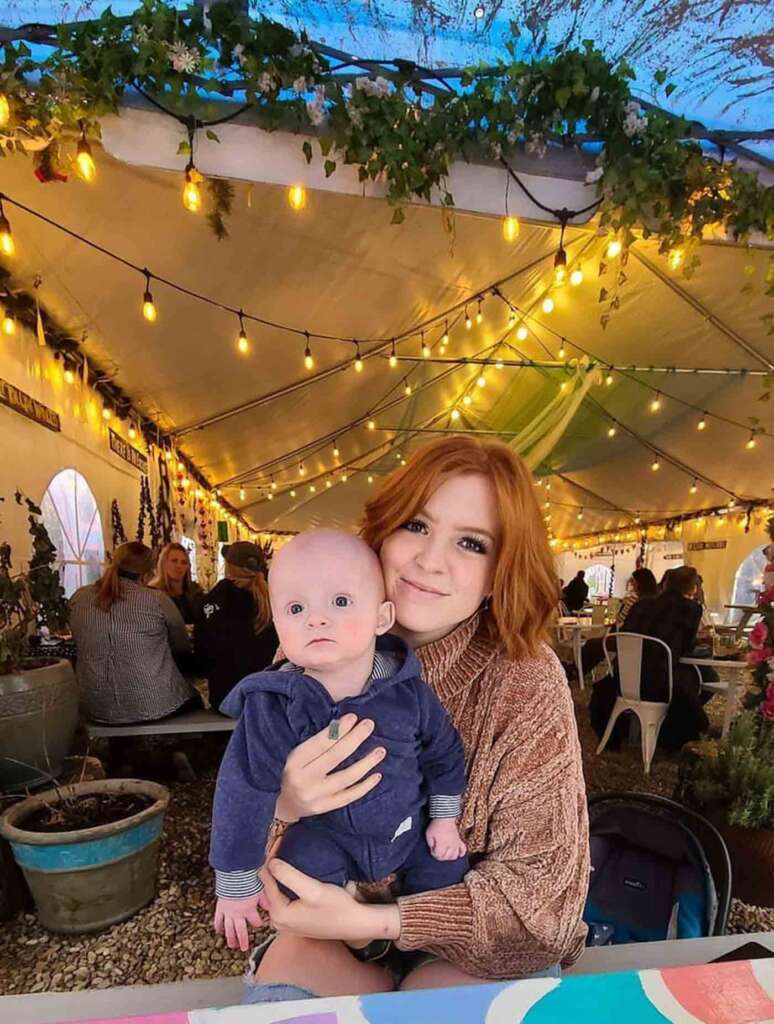
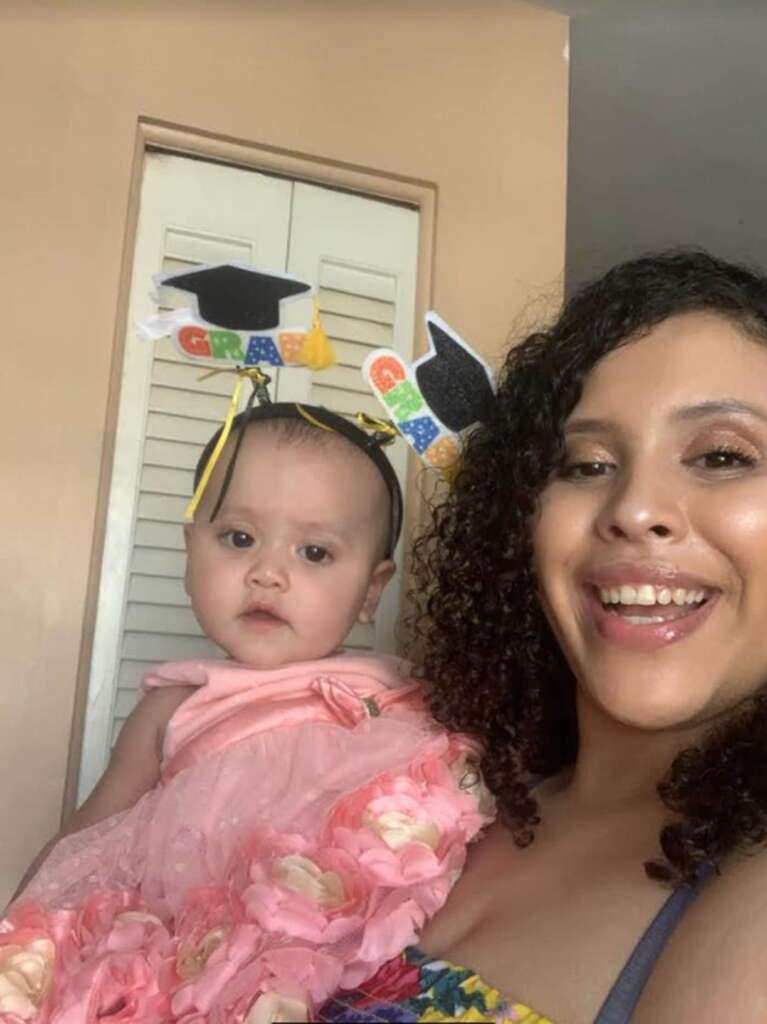
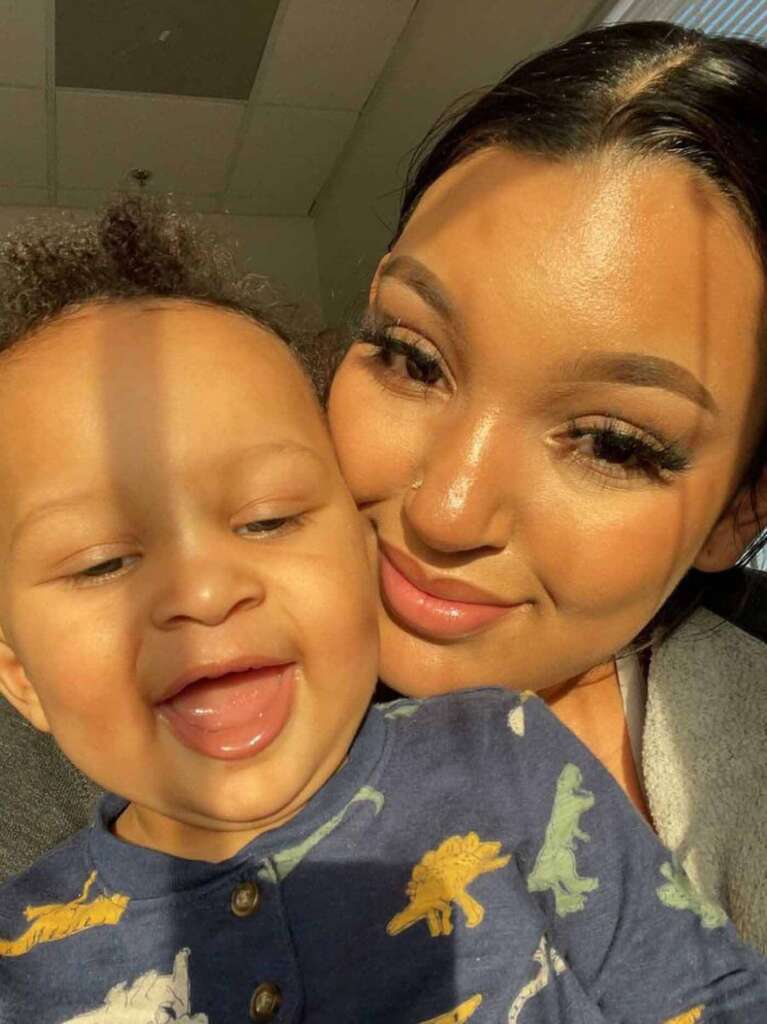

Aysia Miller-Wansel, 17, is saving to buy a car and, when she turns 18, move out of her group home and into her own apartment. She is making $9.50 an hour at a fast-food restaurant, taking high school classes online and dreaming of going to college to become a nurse. At the center of everything is her son, Ozias, who turned 1 in December.
“I’m working my butt off every day. I’m a full-time student, full-time mother, full-time worker, and it wears me out,” Miller-Wansel said. “Sometimes I feel like I have nobody on my side and it’s just me and my son against the world.”
Since the start of the pandemic, reports have emphasized the difficulties of being a parent or being a young adult, but rarely have they acknowledged those who are both — navigating remote school for themselves and their child, the loss of social interaction and support, parenting, child-care closures, work and economic stressors all at once.
“I feel like I’m trying to hold up the world sometimes and it’s crumbling down,” Miller-Wansel said, adding that she looked through 10 different day cares in Pennsylvania, where she lives. Many were closed because of the pandemic, or didn’t have openings for her son’s age group, she said. While Miller-Wansel worries over the potential risk of the coronavirus, she is very happy with the day care she eventually found for her son. His teacher is amazing, she said, and he’s learning so much. Most of his day care is paid for through Child Care Information Services, a state program that helps low-income families pay child-care fees; without that financial support, she doubts she could have gotten him into day care at all.
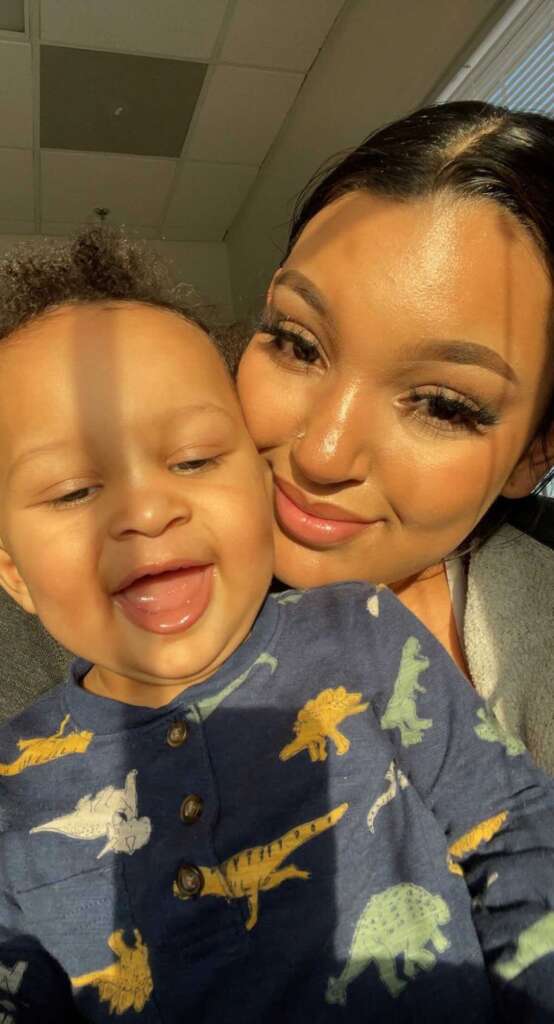

A selfie of Aysia Miller-Wansel and her son, Ozias, in February. (Courtesy of Aysia Miller-Wansel)
Nicole Lynn Lewis, who is the founder of the nonprofit Generation Hope and was a teenage mother herself, said student parents, particularly teenage ones, are a “largely invisible population.” She cited an example from early in the pandemic, when some high schools and colleges installed WiFi in their parking lots to allow students to work there from their cars if needed. But for a parent with two toddlers in the back seat, Lewis noted, that was not a solution.
“Student parents are the epicenter of a lot of these issues,” she said, noting that even before the pandemic, teen parents faced greater levels of housing, financial and food insecurity. “How do we make it easier for parents to access benefits when it comes to housing? When it comes to financial resources?”
Advocates say some policy changes would help: raising the minimum wage; creating more flexibility in the expansion of SNAP and cash benefit programs; making it easier for parents to access benefits for housing; accessible, reliable child care; improving access to health-care and mental health support; and concentrated efforts to ensure young parents earn high school and postsecondary credentials.
Generation Hope focuses on a two-generation solution to poverty, by helping teen parents thrive in college through scholarships and by helping their children thrive in kindergarten, Lewis said.
“The big thing there is that teen pregnancy is complex,” she continued. “When we think about teen mothers as a society, we’re conjuring up a lot of the biases about who deserves support in this country and who doesn’t.” Indeed, Lewis said, there are racial biases when it comes to teen pregnancy: Black and Hispanic girls are getting pregnant at more than double the rate of their White peers, tying teen pregnancy to issues of economic, racial and reproductive justice.
Miller-Wansel said she believes that raising the minimum wage would help her situation. But the obstacles started long before paychecks, she said: When she was first searching for jobs, she kept being turned away. “How am I supposed to be a responsible young mother when no one wants to hire me?” Miller-Wansel wondered.
Araseli Flores, 19, from Maryland, had the same experience. “I was applying for my first job, and none of them were accepting me because I didn’t have job experience,” she said. Initially, she didn’t plan to go to college, because even high school felt tough. But she got the courage to complete her high school degree, telling herself that “when my daughter grows up, she’ll see that I always try to look forward.” She applied, and prayed, for a partial college scholarship through Generation Hope and got it. Now, she’s studying culinary arts at community college, and she hopes to open her own restaurant.
“I know that this scholarship has helped me so much in my life, and I know it will benefit me in my life as well — not only me, but also my daughter,” she said. Of what she would tell her daughter about this time in their lives, Flores said she would talk about hand sanitizer and pandemic paranoia
— and how “your mother never gave up.”



Araseli Flores with her daughter, Liliana, preparing for her drive-through high school graduation party in Hyattsville, Md., on May 30, 2020. (Courtesy of Araseli Flores)
Liss Raber, 18, who lives in South Carolina, has a six-month-old and works from 8 a.m. to 5 p.m. at a preschool and day care, where she receives discounted child care but makes just $9 an hour.
Raber’s fiance works, too, which has been crucial. “I couldn’t get a job after giving birth for a very long time because of the pandemic, and my fiance had lost work several times as well, making it super hard to afford to live, basically,” Raber shared in a message while on a work break.
Raber, who delayed starting college online because of the cost of books, plans on starting classes this summer or next year to save a bit first. She found she loved being a stay-at-home mom, and if she could afford it, she would go back to doing that full-time. Raber didn’t receive a stimulus check — she and her fiance were under 18 at the time.
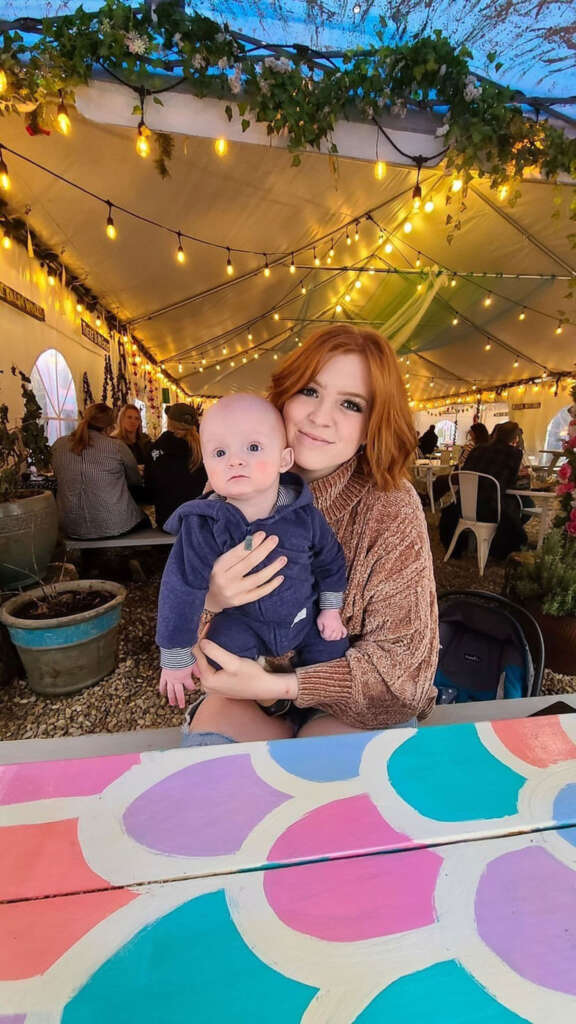

Liss Raber and her son, Leo, at their favorite vegan restaurant, Oh My Soul USA, in Charlotte, in February 2021. (Courtesy of Michael Holley)
Economic stability and removing financial strain is critical to supporting young families, said Kisha Bird, director of youth policy at the Center for Law and Social Policy (CLASP). CLASP’s New Deal for Youth includes working with a cohort of young “Changemakers,” some of them parents, to identify solutions to issues facing young people.
One Changemaker, Darlecia Dublin, 22, spoke about the need for on-site child care: Like Miller-Wansel, she works at a fast-food restaurant, and she hasn’t been able to take time off during the pandemic. Lack of reliable, comfortable child care has made it a struggle “just so I can keep my job, just so that I’ll be able to provide for her, because TANF [Temporary Assistance for Needy Families] is not enough. And unemployment is not enough.”
[ The loneliness of an interrupted adolescence]
Mental health is also a pressing issue, Bird said. As research from CLASP points out, 1.1 million young adults living in poverty reported they needed mental health services in the last year but didn’t receive them — a 47 percent increase from 2016. A Centers for Disease Control and Prevention survey on adult mental health found that young adults, 18 to 24, reported the highest levels of anxiety and depression. Other studies show that, while the pandemic has been hard on everyone, twenty-somethings are experiencing the highest rates of loneliness.
Within that group, parents are acutely affected.
“I personally don’t have a ton of friends, and the ones I do have don’t really understand,” Raber said. They’re at different life stages, and it can be “super lonely.” “I wish there was at least some kind of podcast or something I could listen to since I don’t have anyone to actually talk to or hang out with that is young and [a] teen mom, but there isn’t,” they continued.
This type of isolation can be particularly tough when it comes to young parents growing into themselves, both as people and caretakers. Nila Ricks, chair for the department of social work at Texas Woman’s University who is also a licensed clinical social worker and a former teen parent, said adolescents are at the developmental stage where they are trying to focus on their identities.
“I don’t think we give them enough grace in that area, or support,” Ricks said. And with schools and their health resources shutting down, student parents are even more isolated. That makes it harder to screen for depression or risk factors, including intimate partner violence.
These factors further complicate teen parenting, as young parents are holding multiple identities as students, employees and parents. Now, they may no longer have access to the critical resources school, a workplace or child-care help can provide.
Miller-Wansel wants people to know that being a young parent is harder than they think. She doesn’t know what she’d do without the group home she lives in, and doesn’t know whether she and her son would both be in foster care if they weren’t there. Miller-Wansel said group homes that take in young mothers and children are “lifesavers,” and that support, both financially and emotionally, especially right now, would help.
“The other day, someone just told me that they’re proud of me,” she said. “And I started bawling my eyes out, because that means the world, because it’s just a lot going on now.”
